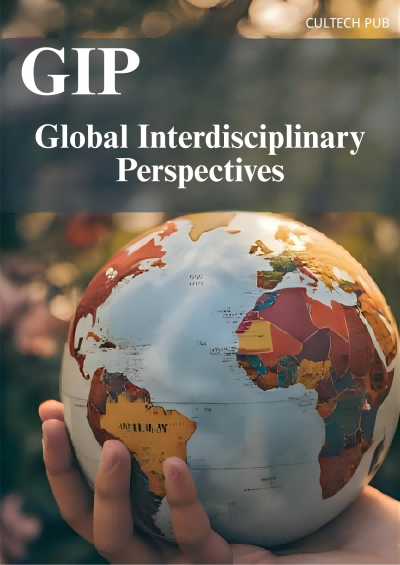Current Issue
Articles

Global Interdisciplinary Perspectives (GIP, eISSN: 3122-7120) is an open-access, international journal dedicated to advancing profound understanding of the human condition, societal structures, and cultural dynamics in an interconnected world. We champion rigorous scholarship that transcends traditional academic boundaries within the humanities and social sciences, fostering transformative dialogues and generating integrated knowledge for complex global challenges.
Serving as a vital platform for global knowledge co-creation, GIP facilitates critical academic discourse among humanities scholars, social scientists, policymakers, cultural practitioners, and thought leaders committed to exploring the multifaceted dimensions of human societies and their futures.
GIP specifically encourages submissions that illuminate critical issues and offer novel perspectives at the confluence of major areas such as:
- Philosophy intersecting with literature, history studies;
Art history meeting cultural theory and media studies;
Linguistics engaging anthropology and cognitive science;
Ethics applied to technology, politics, and environment from historical and cultural viewpoints. - Political economy informed by sociology, history, and geography;
Anthropology bridging psychology, law, and development studies;
Sociology of knowledge meeting science and technology studies (STS);
Comparative legal systems analyzed through political theory and cultural contexts. - Cultural memory, identity politics, and globalization;
Diaspora studies, migration, and transnational communities;
Digital humanities exploring cultural production and reception;
Arts, media, and communication in shaping societal values and narratives;
Cultural dimensions of sustainability and resilience. - Ethical, historical, and cultural foundations of social justice, inequality, and human rights;
Philosophical and cultural critiques of technology, AI, and digital societies;
Historical and comparative perspectives on conflict, peacebuilding, and governance;
Cultural narratives and representations of climate change, health, and well-being;
The role of arts, literature, and humanities in fostering empathy, critical thinking, and societal change. - Development and application of critical frameworks across humanities and social sciences;
Innovative qualitative, interpretive, and mixed-method approaches;
Historical analysis integrated with social theory;
Textual, discourse, and visual analysis applied to contemporary issues;
Reflexive methodologies for interdisciplinary knowledge production.
Rapid Publication
The manuscript processing cycle is approximately 12 weeks from submission to acceptance.
General Information
eISSN: 3122-7120
1st Year Published: 2025
Frequency: Semiannual
Issues Per Year: 2
Country / Region: Malaysia
Primary Language: English
Abstracted/indexed in
